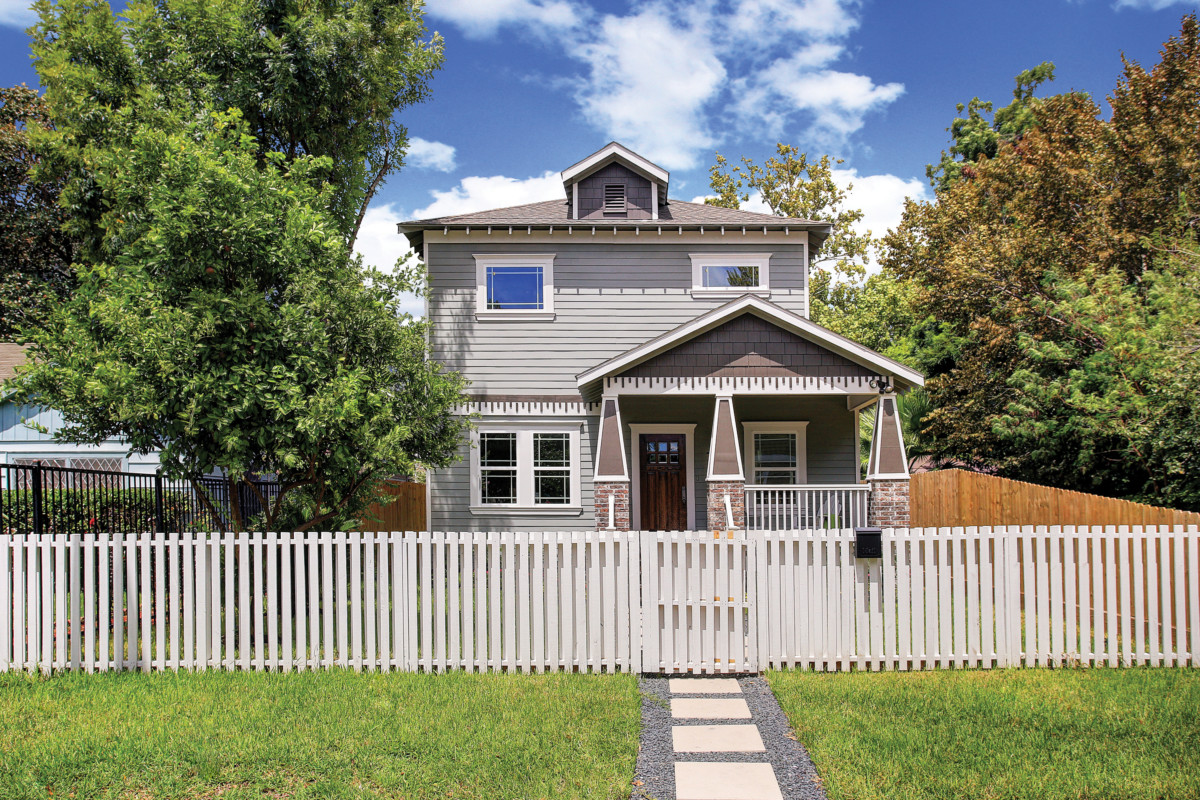10 Pros and Cons of Living in Texas
Thinking of moving to the second largest state? Here are the pros and cons of living in Texas to give you some insight on what to expect. The post 10 Pros and Cons of Living in Texas appeared first on Redfin | Real Estate Tips for Home Buying, Selling & More.


Texas, also known as the “Lone Star State,” is the second-largest U.S. state by area and population. With such a big state, you’ll find something to love about Texas – may that be the fantastic barbeque or the beautiful state parks; there is something for everyone. Whether you’re considering renting an apartment in San Antonio or living in Dallas, here are ten pros and cons of living in Texas. Read on to help you determine if Texas is a good place to live.
Interested in moving to Texas? Check out:
Homes for sale in Texas | Apartments for rent in Texas | Houses for rent in Texas

Quick Facts about Texas
| Population | 29,145,505 |
| Median home sale price | $357,700 |
| Average rent in Texas | $1,553 |
| Largest cities in Texas | Houston, San Antonio, Dallas |
Pros of living in Texas
1. Residents pay relatively low taxes
One of the reasons Texas is so popular is its lack of a state income tax. This policy alone causes people to move to the Lone Star State every year due to a lower overall tax burden. Additionally, entrepreneurs enjoy the fact that Texas is a pro-business state. For example, it has what’s called a “franchise tax.” This tax applies only to businesses, not individuals. Plus, it’s based on margins rather than profits or revenue. As a result, small companies in Texas don’t have to pay much in tax.
2. Affordable cost of living

3. Living in Texas means lots of sunshine
The weather is perfect for picnics, hiking, and biking. You can also go swimming or take a stroll along the beach. If you have kids, you can take them to the many state parks – like Cedar Hill State Park in North Texas and the many theme parks, zoos, and museums. You won’t have to wait until summer to play outside again because there’s always something to do.
4. The job market is booming
With a strong economy and large companies relocating to Texas cities, Texas’ job market is growing – especially if you’re living in Austin. With hospitals expanding or being built all across the state, there is an increasing need for trained professionals in the medical field, especially nurses.
Here are a few other companies of interest that are headquartered in Texas:
- McKesson
- ExxonMobil
- AT&T
- Dell Technologies
5. There are tons of educational opportunities for students
Texas is well-known for its wide range of public and private universities and colleges when it comes to education. There are many family-friendly cities with top-rated schools. The schools are highly rated, and they also have a variety of programs that students can choose from to further their education. Below are some of the top universities and colleges in the state:
- The University of Texas at Austin
- Texas A&M University
- Baylor University
- Rice University
If you have your heart set on attending college or university, you should consider Texas as a great destination.
Cons of living in Texas
However, living in Texas can have its drawbacks, such as the intense heat and humidity during the summer months. Additionally, Texas is prone to severe weather events like hurricanes and tornadoes, which can be challenging for residents. Read on to learn more about the state’s disadvantages.
1. The summer heat can be brutal
Since Texas is a large state, temperatures vary on where you live. For example, living in Fort Worth in the North Central region, you can expect temperatures to range from 94-98°F, whereas you can expect the summer months living in Houston to range from 88-91°F. Texas is generally muggier along the lowlands and the Gulf Coast.

2. You’ll need a car to get around
Due to the state’s size, getting to and from different parts of the state requires some sort of transportation – a car being the most common option for residents. Traveling to major cities within Texas can take three-to-five hours by car. So with a car, you can drive to the distant national parks, cities, and the coast on your own time.
3. Property taxes are high
4. When it comes to bugs, Texas has a lot of them.
Texas’s conditions are almost perfect for encouraging bugs to breed with all that warm weather and the lush vegetation. Some of the more common insect problems Texans face include:
- Bees and Wasps
- Mosquitoes
- Ants
- Spiders
- Roaches
5. Exposure to hurricanes
One of the most important climate risks in Texas is hurricanes and other natural disasters. Texas is a major site for hurricanes, which can devastating damage to your property or even your life. Hurricanes leave thousands homeless and without electricity, so it’s best to prepare yourself beforehand.
The best way to protect yourself from them is to get away before they hit land. You should also make sure that you prepare your house for a hurricane by having flood insurance and the proper supplies ready so that you can evacuate if necessary.
The post 10 Pros and Cons of Living in Texas appeared first on Redfin | Real Estate Tips for Home Buying, Selling & More.
What's Your Reaction?























































































































